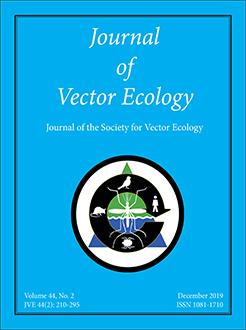Some limnic copepod species are predators of mosquito larvae. Seven species belonging to the order Cyclopoida, family Cyclopidae, were collected in the field in Germany and tested for the first time in laboratory bioassays for their potential to serve as biological control agents of the invasive Asian bush mosquito Aedes japonicus (Theobald), a vector of various pathogens causing disease. Females of Diacyclops bicuspidatus (Claus) did not attack 1st instar larvae of Ae. japonicus, but Macrocyclops distinctus (Richard), Cyclops divergens Lindberg, and C. heberti Einsle predated a mean of 14, 18, or 19 1st instar larvae, respectively. Acanthocyclops einslei Mirabdullayev and Defaye killed 30 larvae, and high predation rates with a mean of 39 or 46 larvae, respectively, were obtained by Megacyclops viridis (Jurine) and M. gigas (Claus). In regression analyses, predation rates by M. viridis correlated with body size, with specimens of 1.8 mm length being more effective than smaller or bigger ones. Based on the presented data, the two Megacyclops species seem to be promising candidates for use in field studies on the biological control of Ae. japonicus.
How to translate text using browser tools
5 November 2019
Predation on the invasive mosquito Aedes japonicus (Diptera: Culicidae) by native copepod species in Germany
Linus Früh,
Helge Kampen,
Günter A. Schaub,
Doreen Werner
ACCESS THE FULL ARTICLE
It is not available for individual sale.
This article is only available to subscribers.
It is not available for individual sale.
It is not available for individual sale.

Journal of Vector Ecology
Vol. 44 • No. 2
October 2019
Vol. 44 • No. 2
October 2019
Aedes japonicus
biological control
copepods
Cyclopidae
mosquitoes
predation




